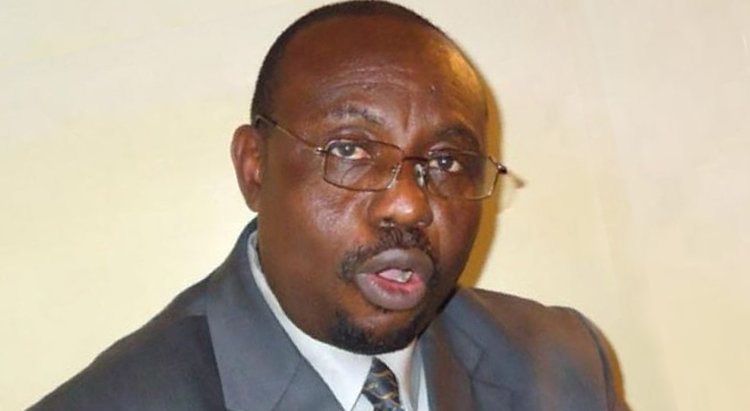Ahead of 2023 general elections, Independent National Electoral Commission (INEC) says it is grappling with lack of trust in the electoral system, public officers and public institutions in the country.
The National Commissioner and Chairman, Voter Education and Information Committee, Independent National Electoral Commission (INEC), Festus Okoye stated this Friday in Uyo during Chief Okon W. Udoh lecture/dinner by Nigerian Institute of Public Relations (NIPR), Akwa Ibom State Chapter.
Okoye, a legal practitioner speaking on the theme Strategic Communication and Credible 2023 Electioneering in Nigeria, also identified deliberate and malicious misinformation and disinformation, and the rise of online media tigers with little or no knowledge of ethics and professionalism as challenges of the commission.
Read also
- 2023: INEC’ll print 186m Ballot papers for Presidential election – Okoye
- INEC Boss swears in New RECs, Bars Them From Govt House
- Preliminary number of registered voters in Nigeria stands at 93m- INEC
Other challenges, according to him, are the shape and character of media ownership in Nigeria, the deployment of limited resources for strategic communications and electoral literacy and the ethnic and religious narratives that sometimes shape public discourse as challenges facing the commission.
He, however, stated that the success and credibility of the 2023 general elections will predicate on effective and efficient strategic communication.
The INEC boss described strategic communication is the effective and intentional use of communication by an organization in furtherance of its goals and mission.
‘‘Part of the success and credibility of the 2023 General Election will be predicated on effective and efficient strategic communication
‘‘The Commission will continue to be transparent by communicating efficiently and effectively with its Publics/Stakeholders,’’ he stated.
‘‘The Commission has a Communication Policy that propels its strategic policy strategy.
‘‘It has a vertical communication system that allows communication to flow from bottom to top and from top to bottom within the commission.
‘‘It also operates a very transparent type of communication that makes it easy for its publics/stakeholders to have access to information without encumbrances,’’ the INEC boss outlined.
On the requirements for communication strategy, he mentioned ‘‘A good knowledge and understanding of the operational environment (This involves the history of the country, the evolution of its electoral process, the social, economic and environmental factors imbedded in and shaping the process, the electoral legal framework and the political dynamics of the country.)
‘‘A good knowledge of the electoral process both theoretically and practically.
‘‘Knowledge of the target audience – publics/stakeholders especially the voters, the political parties, the media, the security agencies, the ad-hoc staff, civil society groups and organizations.
Specific goals for the campaign – Achievable goals.
‘‘Having a team of inspired members with the right knowledge, objectivity, traits and attitudes to drive the strategy.’’
On the demographic changes, he said the Commission takes into consideration the demographic changes in the electoral process.
‘‘During the Continuous Voters Registration Exercise (June 28, 2021 and July 31, 2022) 76.56 of the registrants were young persons between the ages of 18 and 34. The Communication Strategy targets this segment of the population.
‘‘A large proportion of the young people are outside the mainstream media and in the social media. The strategy targets these segments of the Nigerian people.
‘‘The language, preferences, attention span and modus operandi of the young persons are remarkably different. Electoral messages must be designed to appeal to them.
‘‘Some of the young persons are cynical of the electoral process and believe that the society does not care about them. The message of the Commission is that of reengagement and deliberate policies and actions designed to show that the system can work and can be improved upon.’’

